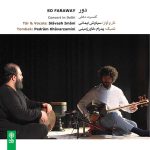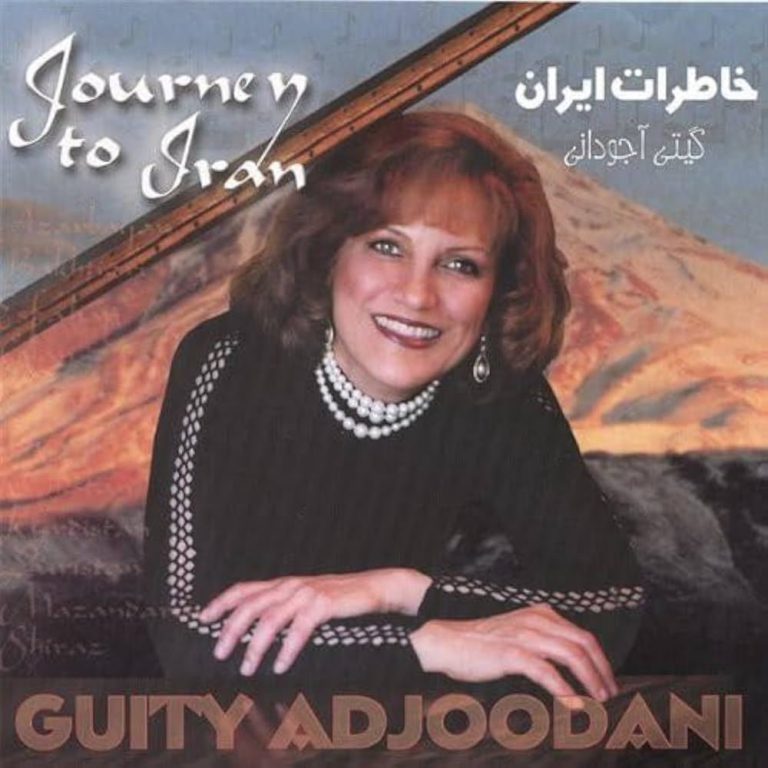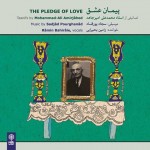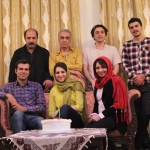Tehran Flute Choir was established in 1394 (late 2015) by Firouzeh Navai. Tehran Flute Choir, Iran’s first largest flute choir, recruited its members mostly from young talented flutists of Iranian Flute Association. Featuring piccolo, flute, alto flute and bass flute, Tehran Flute Choir, directed by Firouzeh Navai, premiered under the batons of Saeed Taghadosi on January 7-8, 2016 at Roudaki Hall in Tehran.
Tag Archives: Iranian flutists
Latest posts
- Transition to Enlightenment: Six Lectures on Mozart’s String Quartets (5)
- Nasser Masoudi: The Voice of Gilan and a Legacy of Iranian Music
- Farhad Poupel: The Voice of the Shahnameh in the Orchestras Around the World
- Five Major Myths About Mozart’s Life
- Bahma Rajabi Passed Away!
- Reza Vohdani; Unveiling unpublished works, preservation of Iranian classical music
- Ahmad Pejman Passed Away!
- Timeless or Timely: The Role of Historical Context in Defining Artistic Value
- Leading the Charge in Censorship
- The Legacy of Khosrow Jafarzadeh
- Transition to Enlightenment: Six Lectures on Mozart’s String Quartets (4)
- Fereydoun Shahbazian, An Iranian Musical Icon Passed Away
From Past Days…

“Symphonic Poems from Persia” Released in Germany
While the name “Persia” (Western historical name of Iran) has attracted tens of thousands of people from around the world to London’s British Museum to visit ancient Persian artifacts, the Nuremberg-based music company, Colosseum, invites Europeans to listen to eight masterpieces of Persian symphonic music.

Whose dream?! Whose reality?!
(A review of the “So Faraway” album; Tar and Tonbak duet; Siavash Imani, Pedram Khavarzmini)

Lilly Afshar, Iranian Guitar Legend, passed away
The text you are reading is about Hamed Fathi, a guitarist and one of Lilly Afshar’s students, which was previously published on the Persian website HarmonyTalk.com:

Journey to Iran Revisited: Celebrating 20 Years of Guity Adjoodani’s Return to Persian Roots
This year marks the 20th anniversary of “Journey to Iran,” an album by Iranian pianist Guity Adjoodani that has resonated with audiences worldwide. Released two decades ago, this album is a beautiful tapestry of twenty Persian folk songs, each carefully selected from the rich musical traditions of various regions in Iran. It also features four notable compositions by the esteemed Javad Maroufi (1915-1992): “Prelude,” “Jila Fantasia,” “Golden Dreams” (Khaab-haa-ye Talaayi), and “Isfahan Rhapsody.” Additionally, the album includes the beloved song “Kiss Me” (Maraa Bebous) by Majid Vafadar (1912-1975), adding depth to an already impressive collection.

A Look at Ali Tajvidi’s Manifold Musical Activities (II)
Tajvidi thought of studying harmony and orchestration with Houshang Ostvar (who was eight years younger than him) at a time when he had gained a reputation among musicians. His humbleness, making him willing to kneel before the scholars at any age and position, became the key to his scientific success. After this period, Tajvidi made some of his works polyphonic, the most prominent of which is “Burn” set to a poem by Abdullah Ulfat. However, his ability to make his works polyphonic was not so great to make him self-sufficient; so he depended on musicians such as Farhad Fakhreddini, Fereydoun Naseri, Kambiz Roshanravan, Fereydoun Shahbazian and Morteza Hananeh for the arrangement of his compositions.

“Pledge of Love”
The “Pledge of Love” is the first album in a series composed based on the tasnifs by the renowned Iranian tasnif-maker Mohammad Ali Amir Jahed and recorded by Sahba Kohan Ensemble with Ramin Bahiraie as signer.

Harmony in the Iranian Music (II)
One of his works was the translation of Harmony, which was carried out with the help of Mozayyan al-Dowleh, and included a pamphlet based on which he used to teach the subject to the students of the school of music; the pamphlet was never published. It was, in fact, a kind of simple harmony for the piano with no quadriads, it rather featured the engagement of both the right hand and the left hand which was being taught at the music school for the first time. Salar-Mo’azez also composed military marches and hymns for schools, which he harmonized to be performed and piano. Likewise, he used to compose for military orchestras.

Is the Iranian National Anthem a Copy? (II)
In response, it should be said that it is better for the national anthem of a country to use the musical material exclusive to that country; however, some problems might come up in doing so the most important of which include: lack of familiarity of other countries’ music performer with the concerned country’s specific music intervals and special musical technique; and secondly, the strangeness of that music to the foreign listener.

HarmonyTalk Celebrates 11th Anniversary
April 6 marks the anniversary of launching HarmonyTalk.com. Back in 2004, HarmonyTalk was rather a blog dedicated to music. Gradually, however, it found its way to becoming a more sophisticated journal with an intensive but not exclusive concentration on classical music.

Simorgh Criticised
Simorgh (Simorq) Orchestra was founded by the renowned Iranian composer, Hamid Motebassem, in 2011. Simorgh Orchestra is the largest orchestra featuring Iranian national instruments. Although the orchestra established by Master Hossein Dehlavi, the great Iranian composer, in 1993 was larger than Simorgh Orchestra, it only featured the Iranian plucked string instruments unlike the latter one. The first album which was recorded by the Orchestra, conducted under Motebassem’s baton, was his Simorq based on Zal story from Shahnameh by Ferdowsi, the great Iranian poet.